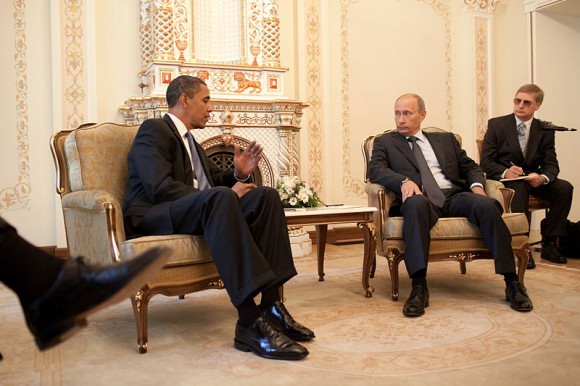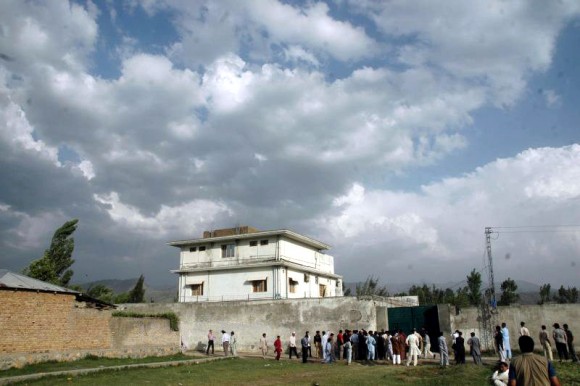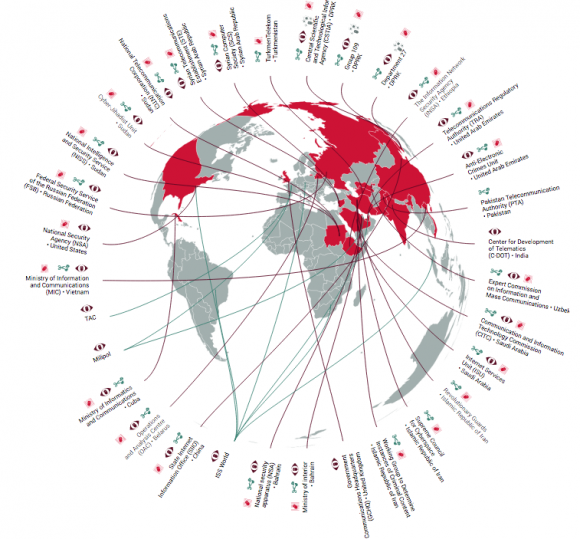
Commentators across the spectrum support Obama’s recent executive order allowing economic sanctions to be placed on Putin’s “inner circle.” The fact that hardly anybody opposes this is instructive.
To put it simply: sanctions don’t work. The well known political scientist Robert Pape years ago examined 115 cases of economic sanctions over almost 80 years and found (p. 99) only 5 that could be considered a success (that is, the targeted nation changed policy in the desired direction of the imposer nation).
In the Los Angeles Times, Andrew Cockburn criticizes the “wholly mistaken belief that [sanctioning] makes the targets do what we want.” Cockburn delves into an eloquent and persuasive debunking of the near-universal belief that harsh economic sanctions on Iran “brought them to the table” and pressured them to make concessions. Former U.S. Ambassador to Iran William Miller described that narrative as “total nonsense.”
I’ve written about this several times myself. To make a long story short: (1) Iran made an even better offer back in 2003, before the worst of the sanctions (and it was rejected by the U.S.); (2) once the sanctions began in earnest, Iran became even more defiant. In 2003, Iran had 164 centrifuges operating and no 20% enriched uranium. After a decade of escalating sanctions, in 2013 Iran had 19,000 centrifuges and a sizable stockpile of 20% uranium. If that’s success, I’d hate to see failure.
A good example of the mindless enthusiasm for sanctions appeared in yesterday’s Washington Post. “Putin won’t back down, or be kicked out, until credible threats to his power create a split among his elites and advisers,” Garry Kasparov wrote in advocating harsh sanctions on Putin’s inner circle. “Right now they have no incentive to bet against him. Putin protects them and their assets while the free world they enjoy living in has made no moves that would force them to choose between their riches and Putin.”
Does Kasparov really believe Putin’s lifelong friends and sycophants who have been enriched by sticking close to the president of Russia’s profoundly corrupt economic system will suddenly decide to oppose Putin’s foreign policy and initiate some kind of silent coup just because Obama targets them with sanctions? This is a fantasy. More likely, as we see from history, Putin and his inner circle will dig in their heels, become more defiantly committed to their cause, and find ways to retaliate.
“Sanctions have an economic impact, there’s no question about that,” the Cato Institute’s Steve Hanke said recently. “But they almost never achieve their political goals and they’re largely symbolic.”
This point about sanctions being symbolic is the important point, as I hinted above. Since they don’t actually change policy in the desired direction, sanctions really serve only one purpose: they make America seem tough. The benefit for Obama is huge in that he neutralizes right-wing criticisms that he is appeasing Russian imperialism. Sanctions are merely for domestic consumption. Aside from making Obama look tough, they serve no greater foreign policy utility.






